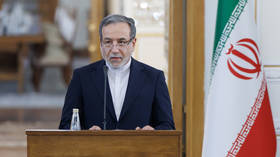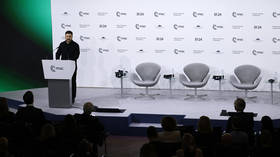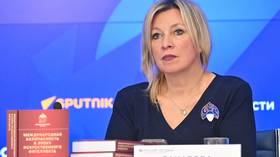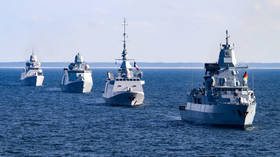Syrian opposition, the US attempt 'to scrap Geneva 2 talks and make them meaningless'
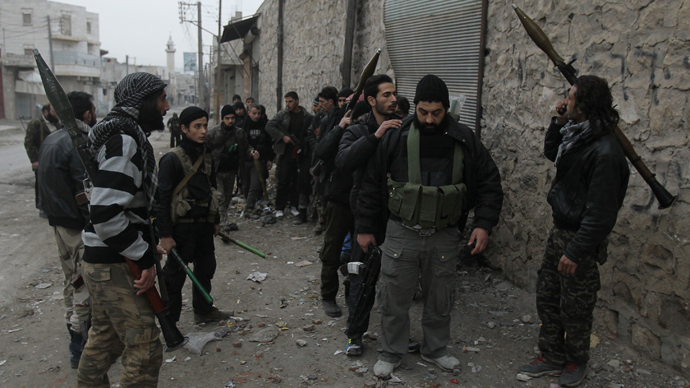
The Syrian opposition and the US government have placed a condition on the Assad government, which they know in advance will be impossible for it to meet, Brian Becker, Director at the Anti-war Answer Coalition, told RT.
RT:The opposition says it is ready to withdraw from the conference at any moment, what kind of signal does that send?
Brian Becker: The Syrian opposition has come to the conference kicking and screaming in the first place. They don’t really want to be there because there is nothing that they think that they can get from the conference. The Syrian opposition only wants one thing which is to replace Assad’s government with their own government; and clearly the Assad government at Geneva is prepared for a political settlement but won’t agree in advance that the Assad government will disappear and no longer be present in Syria. So the Syrian opposition and in fact the US government have placed a condition on the Assad government, which they know in advance will be impossible for the Assad government to meet. This is an attempt to scrap the talks and make the talks sort of meaningless.
RT:Both the opposition and its Western backers want to form an interim government without Assad. Damascus wants to focus on tackling terrorism. Given these differences, can such fundamental differences be bridged?
BB: I don’t think so. The US government and the NATO allies and their proxies in the region - Qatar, Saudi Arabia, and Turkey - they expected long ago that the Assad government would fall based on the coordinated international effort that funneled guns and money into Syria. But they are failing, and so we see Geneva 2 as trying to go along the Geneva road map for the negotiated settlement, but the Assad government doesn't feel that it’s militarily defeated, in fact, it’s secure right now not only militarily, and he has big popular support. I don’t think the contours that are demanded by the West and the Syrian opposition is for Assad to go - Assad is not going.

RT:Just one part of the opposition is present in the negotiations, if any deal is reached, other rebel groups won't accept it, will they?
BB: No, you can see that there are forces within the Syrian armed opposition, those affiliated with Al-Qaeda, those who are getting the bulk of their arms from Saudi Arabia and from other regimes in the Middle East. They are there in order to create an Islamic state, they don’t look for a negotiated settlement, they are not going to agree on a negotiated settlement. So it’s not possible for the Syrian government to see the Syrian opposition as a real partner for negotiations, when there are two armed wings fighting each other, and fighting the Assad government. One wing is determined in advance that they will never agree to some sort of transition that allows the Ba’ath party to remain in power in any shape or form.
RT:How do you assess the UN decision to withdraw its invitation to Iran? Do you agree it was necessary to guarantee the participation of the Syrian opposition?
BB: It just shows how duplicitous this whole project is, and how the United States is behind the scenes, the ultimate arbiter of what happened. The United Nations authorized and invited the Iranian government to participate, the US screamed and howled and said “no”, within 24 hours the UN changed its line and disinvited Iran. It shows that the UN has become nothing more than a fig leaf for United States in those instances where the US is calling the shots, and when it’s becoming truly independent, as happened at the earlier stages of Syrian crisis, the US just said “We don’t want to listen to the UN.” So what is it really if it cannot stand up to the United States?
RT:Do you think Iran's exclusion is likely to undermine the talks?
BB: You cannot talk about a regional settlement of a major problem in the Middle East and exclude Iran, including sanctioning of Iran, the constant threats on Iran. Even now Iran clearly doesn't have a nuclear weapons program, and clearly wanted to participate in a negotiated settlement in the country that it has a great deal of interest in, and is a principle supporter of the Assad government. The fact that the US wants Iran out of the picture shows that the US has the politics of empire, that only they will be the arbiter of the final outcomes in this oil-rich, resource-rich part of the world.
The statements, views and opinions expressed in this column are solely those of the author and do not necessarily represent those of RT.
The statements, views and opinions expressed in this column are solely those of the author and do not necessarily represent those of RT.




